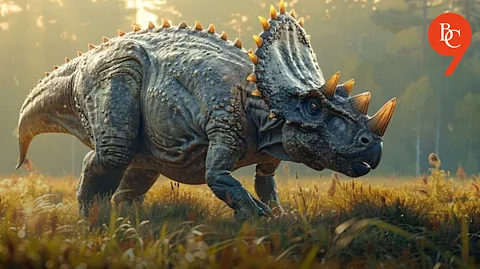

In the collective imagination, artificial intelligence (AI) is often painted as a digital dinosaur-an unstoppable force that will devour industries, jobs, and maybe even creativity itself. But is AI truly the monster that will eat up everything, or is it a powerful tool reshaping our world for the better?
AI’s growth is nothing short of meteoric. By 2025, its global market is projected to surpass $184 billion, with applications spanning agriculture, manufacturing, healthcare, finance, and beyond. AI is automating repetitive tasks, optimizing supply chains, predicting equipment failures, and even helping farmers increase yields while conserving resources. In every sector, AI is not just replacing old methods-it’s unlocking new possibilities.
The fear that AI will “eat” all jobs is widespread-and not unfounded. Studies suggest that up to 300 million jobs worldwide could be impacted by AI, with 41% of companies planning workforce reductions as automation expands. Sectors like manufacturing, logistics, and even creative fields are seeing roles reshaped or replaced by intelligent systems.
Yet, the story doesn’t end there. AI is also creating new roles, demanding skills in data analysis, AI management, and human-AI collaboration. In fact, AI can lower skill barriers, enabling more people to access knowledge and innovate in ways previously unimaginable. History shows that every technological revolution disrupts some jobs but creates others-AI is following this same pattern.
Rather than a mindless predator, AI acts more like an evolutionary catalyst. In agriculture, AI-driven precision farming is improving yields and sustainability. In manufacturing, predictive maintenance and quality control powered by AI are driving efficiency and reducing waste. Financial services, healthcare, and retail are all being reinvented, with smarter decision-making and better customer experiences.
AI’s impact is profound, but it’s not about total destruction-it’s about transformation. Businesses that embrace AI report higher productivity, faster innovation, and a competitive edge in the global market.
Of course, AI’s rise brings real challenges. Workforce disruption is a pressing concern, and ethical questions about bias, transparency, and security must be addressed. The benefits of AI must be made accessible to all, not just a privileged few, and governments and industries must invest in digital literacy and reskilling programs.
AI is not a dinosaur destined to eat up everything in its path. Instead, it’s an evolutionary force-powerful, sometimes disruptive, but ultimately transformative. The future will belong to those who harness AI’s potential while addressing its risks, ensuring that this digital revolution benefits everyone.
